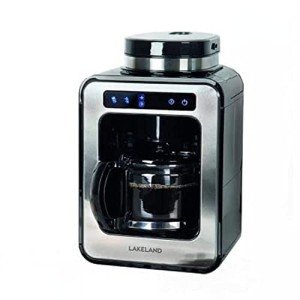20 Coffee Brewers Websites Taking The Internet By Storm

The Rise and Reign of Coffee Brewers: A Comprehensive Guide to Brewing Perfection
Coffee is more than just a drink; it's a routine that numerous around the world treasure. Whether it's the very first cup to kickstart the day or a mid-afternoon pick-me-up, the technique of preparation significantly influences the taste and general experience of coffee. Coffee brewers have actually progressed significantly for many years, from traditional drip machines to advanced espresso makers, making it important for coffee enthusiasts to understand the numerous types offered and their distinct advantages.
The Evolution of Coffee Brewing Methods
Coffee developing has a rich history that covers centuries. The technique used frequently reflects cultural customs and advancements in technology. Here, we will explore some of the most prominent coffee developing methods, their pros and cons, and which type of brewer may match different way of lives and choices.
1. Drip Coffee Makers
The drip coffee maker is among the most popular developing techniques, particularly in families and workplaces.
Pros:
- Simple to utilize: Just add water and coffee grounds.
- Perfect for brewing numerous cups at as soon as.
- Constant taste with automatic temperature control.
Cons:
- Limited control over brewing time and temperature.
- Usually requires filtered coffee, which some may discover restricting.
2. French Press
The French press, likewise called a press pot or plunger pot, is preferred by many for its abundant taste extraction.
Pros:
- Allows for complete control over developing time.
- Produces a thick and delicious cup of coffee.
- No requirement for paper filters, which is environment-friendly.
Cons:
- Requires more manual effort than automatic machines.
- Can result in sediment in the bottom of the cup.
3. Espresso Machines
Espresso machines vary from handbook to fully automated systems designed to produce focused coffee shots.
Pros:
- Versatile: Can make espresso, coffees, lattes, and more.
- Produces abundant, vibrant tastes and a silky crema.
Cons:
- Typically more expensive and requires more knowledge to operate.
- Cleaning up and upkeep can be more complex.
4. Pour-Over Coffee Makers
Pour-over methods like the Chemex and Hario V60 have actually gotten traction for their capability to brew a clean and aromatic cup.
Pros:
- Provides outstanding control over the developing procedure.
- High-quality flavor extraction when done correctly.
Cons:
- Time-consuming and requires ability to perfect.
- Not perfect for producing large quantities.
5. Cold Brew Coffee Makers
Cold brew is made by soaking coarsely ground coffee in cold water, producing a smooth, less acidic drink.
Pros:
- Smooth and refreshing, with lower level of acidity compared to hot brew.
- Can be made in large batches and kept for days.
Cons:
- Requires advanced preparation, as steeping can take 12 to 24 hours.
- Some may dislike the distinct taste profile.
| Developing Method | Pros | Cons |
|---|---|---|
| Drip Coffee Maker | Basic, brews numerous cups | Limited control |
| French Press | Complete control, abundant flavor | Manual effort needed |
| Espresso Machine | Versatile, rich flavors | Higher expense and complexity |
| Pour-Over | Excellent control, high-quality taste | Lengthy, skill-dependent |
| Cold Brew | Smooth, low acidity | Long developing time, distinct flavor profile |
Selecting the Right Coffee Brewer
When selecting a coffee maker, a number of factors should be taken into factor to consider:
- Brew Size: How many cups do you normally make at when? For those developing for a crowd, a drip coffee maker or a bigger French press may appropriate.
- Time Commitment: How much time are you happy to commit to developing? If time is of the essence, automatic machines may be preferable.
- Flavor Preferences: Do you enjoy intricate flavors and boldness? An espresso machine or pour-over approach might be ideal.
- Budget plan: High-quality coffee machines can vary substantially in cost, so identifying your budget plan will limit choices.
- Area: Consider the countertop space available in your kitchen, as some brewers can be rather large.
FAQs About Coffee Brewers
1. How do I clean my coffee maker?
The majority of coffee makers have specific cleansing guidelines in their manuals, however basic techniques include:
- For drip coffee makers: Run a solution of vinegar and water through the brew cycle followed by clean water.
- For French presses: Disassemble the plunger and clean it under warm water utilizing a soft sponge.
2. How often should I replace my coffee maker?
Generally, coffee machine can last anywhere from 5 to 10 years with appropriate care. If look at this website see a decline in the taste of your coffee or consistent problems with functionality, it may be time for a replacement.
3. Can I use routine coffee with an espresso machine?
Yes, you can use routine coffee, but it will not yield the very same concentrated taste profile as utilizing espresso roast coffee specifically created for such machines.
4. What is the very best coffee-to-water ratio for developing?
A basic guideline is the "Golden Ratio" of 1:16, which is one part coffee to 16 parts water, but experimentation might lead you to your personal choice.
5. Are expensive coffee makers worth it?
Higher-end coffee machine often have better build quality, more functions, and offer much better flavor control. However, "worth it" can be subjective based upon private requirements and budget plan.
The variety of coffee brewers offered today permits lovers to explore and experiment with tastes, strategies, and developing times, making every cup an unique experience. Whether opting for a basic drip machine or mastering the art of espresso brewing, the journey of developing the best cup of coffee continues to develop. By understanding the various developing methods and their attributes, individuals can make educated decisions that boost their everyday coffee routine and appreciation. After all, the best maker can make all the distinction in enjoying that much-loved cup of joe.

